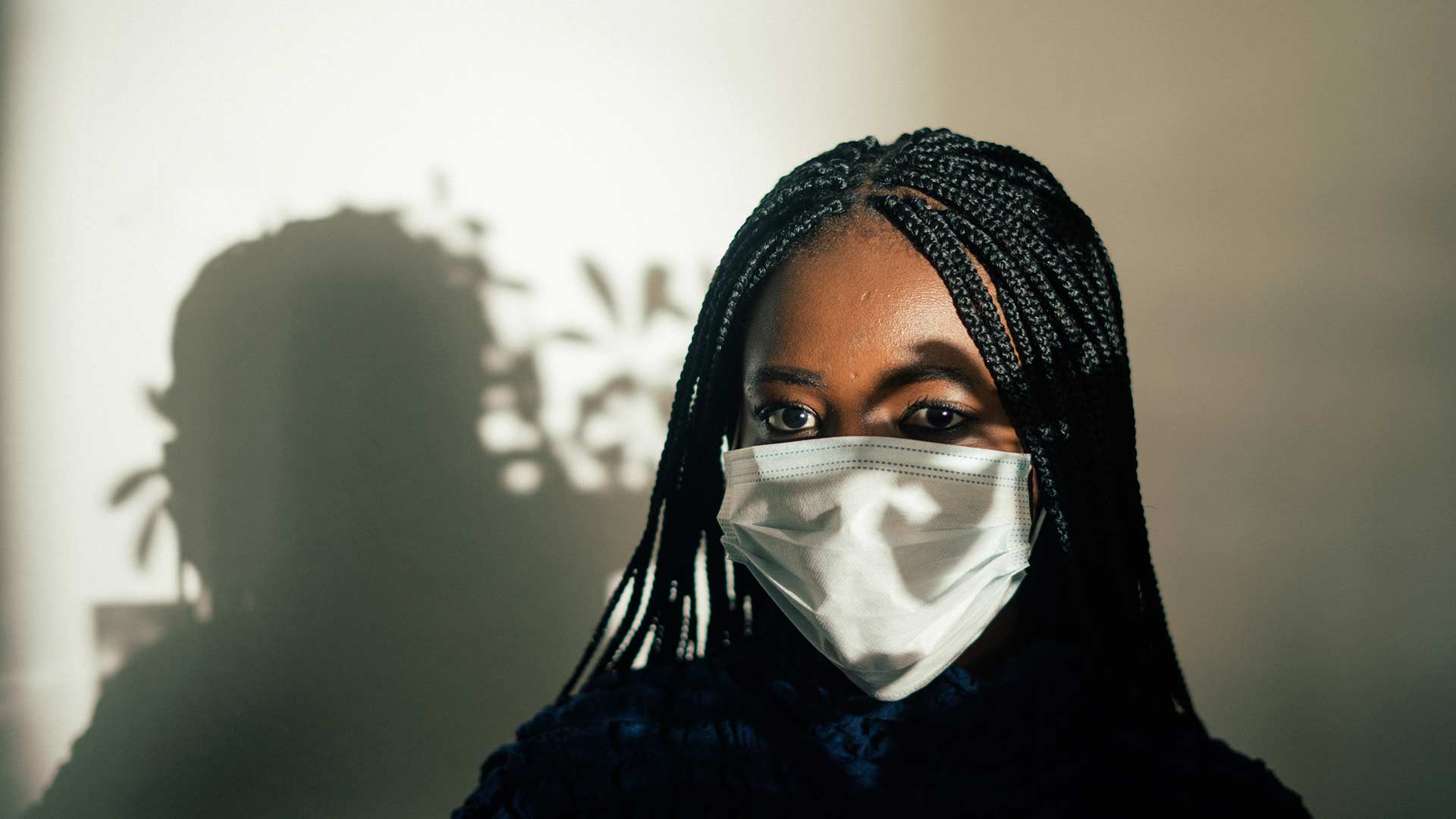Mental health care cannot stop for COVID-19
Drickus Maartens • July 14, 2020
Strict precautions equip Cape Town mental health facilities for safe admissions
Mental health challenges and substance use disorders continue to affect people’s lives regardless of the unfolding COVID-19 pandemic. The pandemic has also, in some cases, brought about mental health challenges for individuals. It is therefore essential that specialised multi-disciplinary in-patient care remains available, even for those individuals who may be COVID-19 positive but are medically well, with mental health facilities ensuring that strict precautions are in place for the protection of all concerned.
“Psychiatric conditions – such as depression, anxiety or mood disorders and addiction, frequently manifest at the same time, and it is of concern that the additional pressures many people are facing due to the pandemic could exacerbate underlying mental health challenges,” says Nickie Crookes, hospital manager of Akeso Stepping Stones and Akeso Milnerton in Cape Town.
“To ensure that persons who may be in need of professional mental healthcare can be assisted at this time, we have introduced strict, though absolutely necessary, precautions to enable us to continue to provide in-patient treatment in a safe environment. Clients are therefore required to test for COVID-19, 48 to 72 hours prior to admission, and self-isolate from the time of their test until they enter our care.
“Knowing the COVID-19 status of our clients enables us to take all the necessary precautions to safely treat and care for all, as well as to protect all healthcare workers at our facilities,” she explains.
Individuals whose test result indicates they are COVID-19 negative will be cared for in a ‘green zone’, either at Akeso Milnerton or within Akeso Stepping Stones., Akeso Stepping Stones has been designated only for COVID-19 negative patients. “Even in these green zones, we have implemented additional hygiene, social distancing, daily screening and other precautions.”
In the case of emergency admissions, testing will be performed on admission and the person will be cared for in isolation in a ‘yellow zone’ for persons under investigation (PUIs) at Akeso Milnerton until their test results become available.
“We have also planned for the scenario where a COVID-19 positive patient is medically well enough to not require acute hospital care, but is in urgent need of professional mental health support. Akeso Milnerton has a specially isolated ‘red zone’, which is specifically equipped for the care of positive patients who are medically stable,” Crookes notes.
“Stringent precautions are in place to prevent transmission from persons in the ‘red zone’, and all practitioners and staff members wear appropriate protective personal equipment [PPE]. Patients who are admitted with COVID-19 are carefully monitored for changes in their medical condition, and can be transferred to hospital for medical care should the need arise.”
Akeso Milnerton offers specialist in-patient treatment for a range of mental health conditions, including anxiety and depression, substance abuse and addiction and post-traumatic stress disorder. The facility has units dedicated to general psychiatry, dual diagnosis, and adolescent care, and a specialist service for treating adolescents with eating disorders.
Akeso Stepping Stones
specialises in dual diagnosis, providing integrated treatment programmes that take into account that addiction and psychiatric conditions are often strongly interrelated, and has a detoxification programme managed by Dr Duncan Laurenson, a medical practitioner and substance use disorder specialist. “It is often difficult to separate the effects of substance use disorders from those of underlying mental health issues, and our multi-disciplinary team is highly experienced in holistic integrated treatment,” Crookes adds.
“While there is much focus on COVID-19 at present in South Africa, our message to the public is that mental health should always remain a priority. From our side, Akeso facilities have spared no effort to ensure we can continue to provide treatment safely during the pandemic,” she concludes.

Colorectal cancer, one of the most prevalent yet preventable cancers, can develop in the colon or rectum, often starting as small polyps that can quietly become malignant if left unchecked. Dr Mpho Ramabulana, a colorectal surgeon and gastroenterologist at Netcare Akasia Hospital, underscores the life-saving power of vigilance and the importance of early detection.

The lives of millions of South Africans with a litany of rare diseases can be vastly improved, and even saved, by addressing challenges in identifying, studying and treating their conditions. With Rare Disease Day on the 28th of February 2025, the Rare Diseases Access Initiative (RDAI) is driving an evolution of the country’s healthcare, through innovative strategies to better care for over 4.2million people living with an estimated 7000 rare diseases. “As our healthcare system faces significant changes in the years ahead, it is vital that we also advocate for people living with rare diseases in South Africa, especially those with limited healthcare access,” said Kelly du Plessis, CEO of Rare Diseases South Africa (RDSA), a member of RDAI. “As part of our ongoing research and awareness efforts, RDAI has conducted an initial analysis of the incidence and prevalence of rare diseases within the country.” This research will assist in improving access to healthcare, policy development, and patient advocacy, while giving critical insight into the challenges faced by patients. “According to research, some rare diseases affect fewer than 1 in a million people, while others, such as Down syndrome, cystic fibrosis, and haemophilia, have a more recognisable prevalence,” says Dr. Helen Malherbe, RDAI lead researcher on rare disease prevalence data. “Many conditions are undetected, underdiagnosed or misdiagnosed, with too many having no information available about them at all.” The RDAI was formed in 2019 to promote a more favourable environment for those impacted by rare diseases in South Africa. Participants include Ampath, the Board of Healthcare Funders (BHF), Discovery Health, Genetic Counsellors South Africa (SASHG), the Government Employees Medical Scheme (GEMS), Health Funders Association (HFA), Medihelp, Medscheme, North-West University (NWU), Rare Diseases South Africa (RDSA), the South African Medical Association (SAMA) and The South African Medical Technology Industry Association (SAMED). The Council for Medical Schemes (CMS) participates as an observer. In the same year, Rare Disease International signed a memorandum of understanding with the World Health Organisation leading to an international rare disease policy framework. In 2021, the United Nations General Assembly moved to adopt a resolution recognising 300 million people living with rare diseases worldwide. “A general lack of awareness and delayed diagnosis remain major hurdles for those affected by rare diseases. Policymakers and healthcare stakeholders need to prioritise access to treatment, diagnosis, and support for rare disease patients,” says Bada Pharasi, CEO of IPASA, “Through this initiative, working collaboratively with stakeholders at every level of the healthcare supply chain, we can bring real and meaningful change to those affected, including family members and care givers, through smart and efficient strategies.” The globally agreed definition of a rare disease is any medical condition with a specific pattern of clinical signs, symptoms, and findings that affects fewer than or equal to 1 in 2000 persons in a population. “Most are genetic, and some are inherited and passed down in families,” Malherbe says. “Some affect only the patient’s genetic recipe, while others may be acquired during life due to infection, trauma, or environmental effects. For many, the cause is still unknown. “These conditions mainly affect children, as they are largely incurable and many are life-threatening. Some require specialised and co-ordinated care, some have limited and expensive treatment options, while others have no information or effective treatments at all,” she adds. The RDAI is calling for a patient-centred care model built on equitable access, transparency and efficiency. Naturally, this model calls for the open participation of patients, the healthcare industry, health professionals, and the Government. “The most critical elements are robust diagnosis standards, improved access to treatment, data collection and management, co-ordination of care, measurement of outcomes and ongoing collaborative research,” du Plessis says. “We need to establish rare disease advisory committees, map gaps and opportunities, establish system requirements, create a roadmap and plan a phased implementation with clear timelines.” The RDAI states that these policy development steps would be a start in quantifying the disease burden and defining standards of care. This would be followed by building and strengthening the capacity to facilitate appropriate diagnosis, treatment, continuity and data monitoring. Thoneshan Naidoo, Chief Executive Officer of the Health Funders Association noted that, “We appreciate the unique opportunity provided by RDAI which enables stakeholders across the industry to work together and identify strategies that improve equitable access to the appropriate diagnosis, treatment and healthcare services for rare disease patients, in an affordable and sustainable manner, taking account of the other pressing needs across the healthcare system.” “True innovation in healthcare is only possible through partnerships and joint advocacy efforts that raise awareness and improve access to treatment. Our long-term goal is the development of a rare diseases policy framework and guidelines for coordinated care,” says Pharasi. “Our members are united in the commitment to unlocking improved patient outcomes and improving access to services and robust health needs assessment facilities.” he concludes. About RDAI The Rare Diseases Access Initiative (RDAI) is dedicated to advocating for improved healthcare access, policy development, and patient support for those affected by rare diseases in South Africa. The initiative brings together key healthcare stakeholders, including pharmaceutical associations, funders, genetic specialists, and patient advocacy groups, to drive impactful change. About RDSA Founded in 2013, Rare Diseases South Africa (RDSA) is a non-profit organisation advocating to ensure that people living with rare diseases and congenital disorders experience greater recognition, support, improved health service and better overall quality of life. Started out of personal need following the diagnosis of organisation founder, Kelly du Plessis' son, it became evident that there was a lack of awareness and support for rare diseases in general in South Africa. About IPASA The Innovative Pharmaceutical Association South Africa (IPASA) is a voluntary trade association representing 24 leading pharmaceutical companies committed to research, development, and innovation. Our mission is to drive healthcare advancement by advocating for policies that improve patient access to safe, high-quality, and affordable medicines.











